
Terminal 3
Terminal 3 connects people the same way airports do just with coffee beans from around the world in place of international flights.
The coffee shop and roastery on Lake Shore Boulevard carries beans from nearly every continent including North and South America, Asia and Africa. With the roasting done in-house, right in view of the customers.
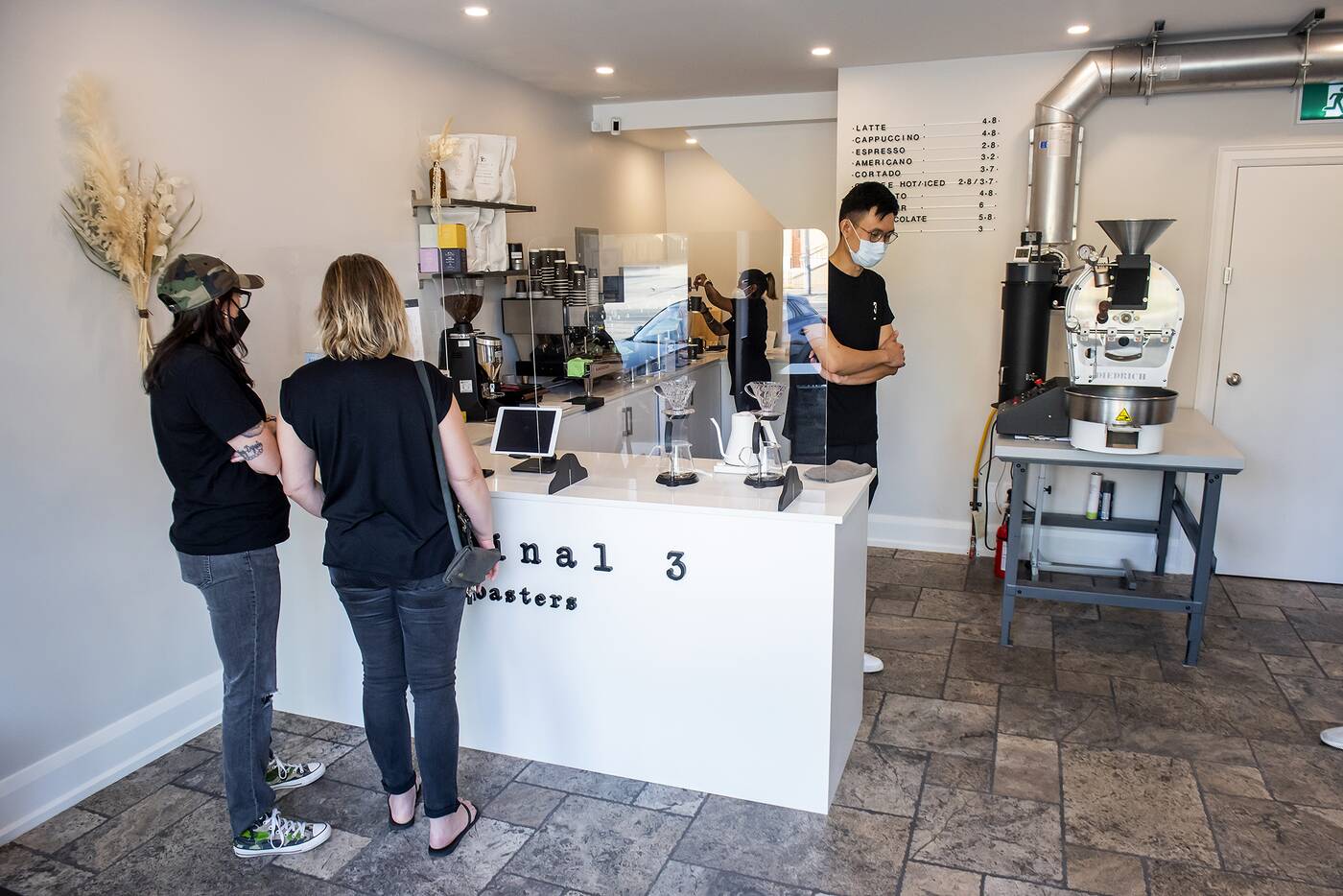 The cafe, simply designed in black and white, is made a bit warmer with dried flowers from Thyme Studio. A counter with a few stools faces out to the street and patio tables sit under the outdoor air vent that dispenses strong aromas of roasting beans.
The cafe, simply designed in black and white, is made a bit warmer with dried flowers from Thyme Studio. A counter with a few stools faces out to the street and patio tables sit under the outdoor air vent that dispenses strong aromas of roasting beans.
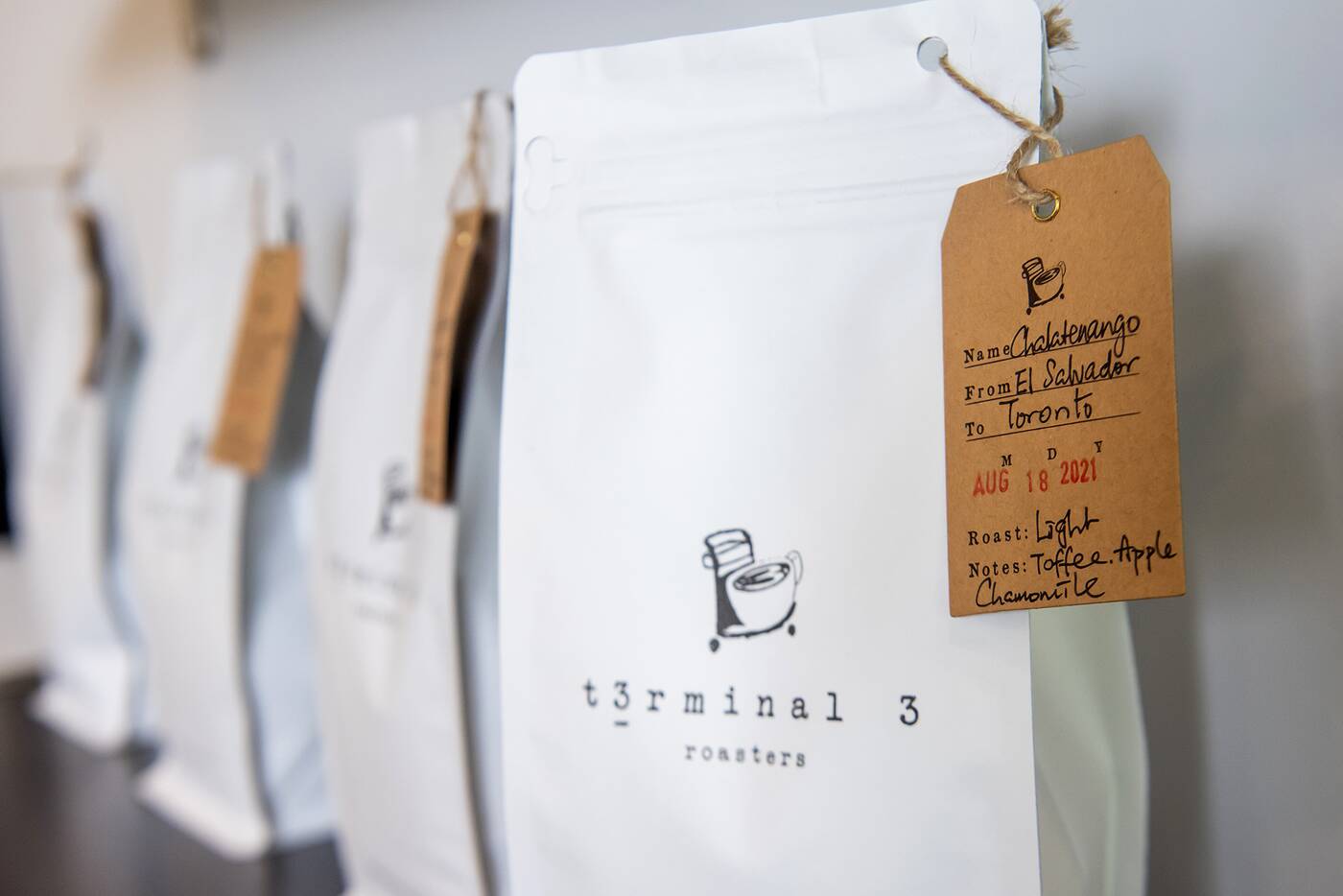 Fresh beans for homebrew come with an info stub similar to a luggage tag. Here is where you'll find the origin of the bean, roast date, and some of the flavour notes to be expected. Illustrations on the back tell you the best way to prepare it between a French press, espresso machine, or pour-over method.
Fresh beans for homebrew come with an info stub similar to a luggage tag. Here is where you'll find the origin of the bean, roast date, and some of the flavour notes to be expected. Illustrations on the back tell you the best way to prepare it between a French press, espresso machine, or pour-over method.
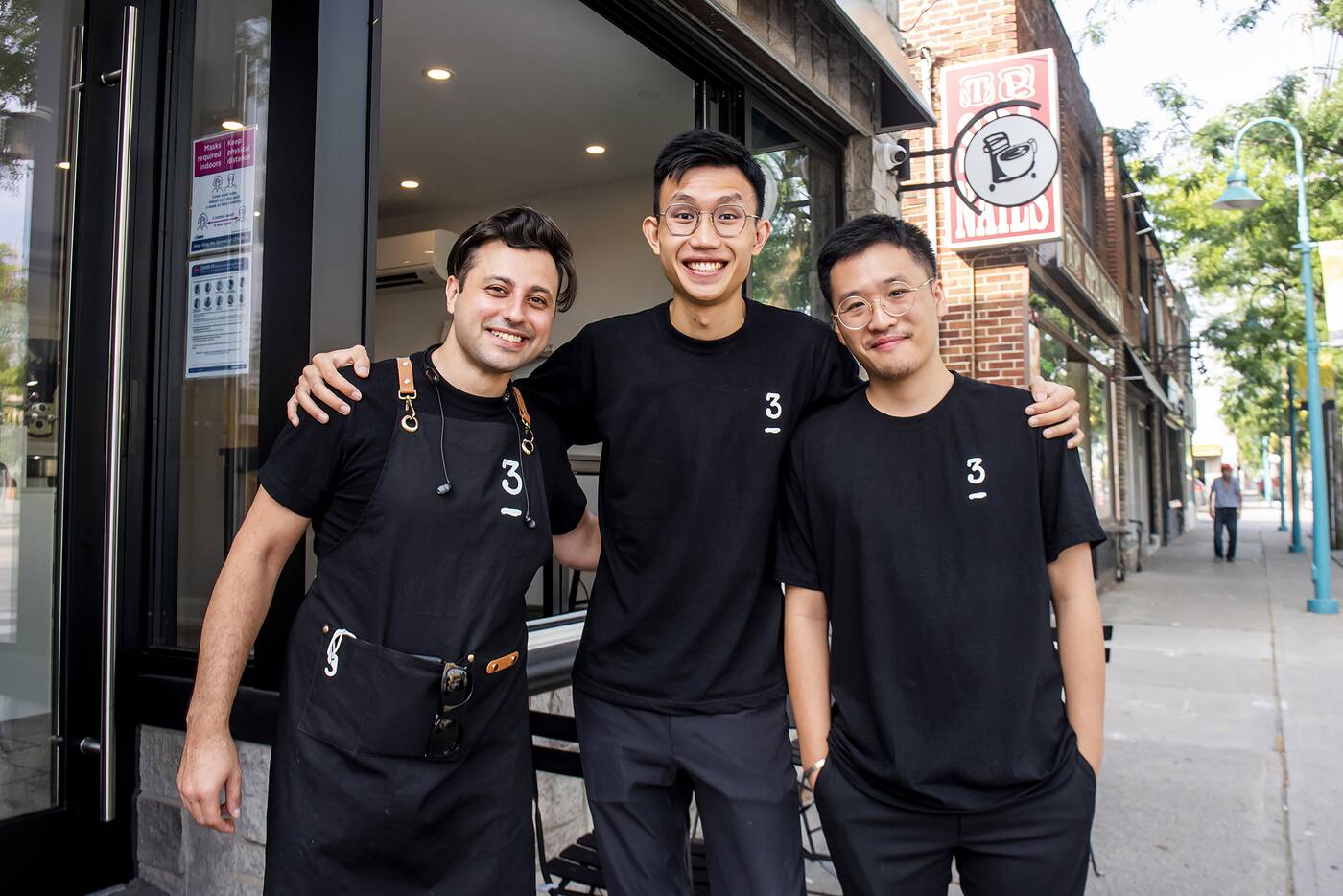 Owners and avowed coffee enthusiasts Mo Alzatmah and Horlick Ng have been roasting from home for about five years.
Owners and avowed coffee enthusiasts Mo Alzatmah and Horlick Ng have been roasting from home for about five years.
Both of them have full-time jobs in finance and met seven years ago during a co-op. Ng's old high school pal, Ricky Leung is responsible for the branding and illustrations.
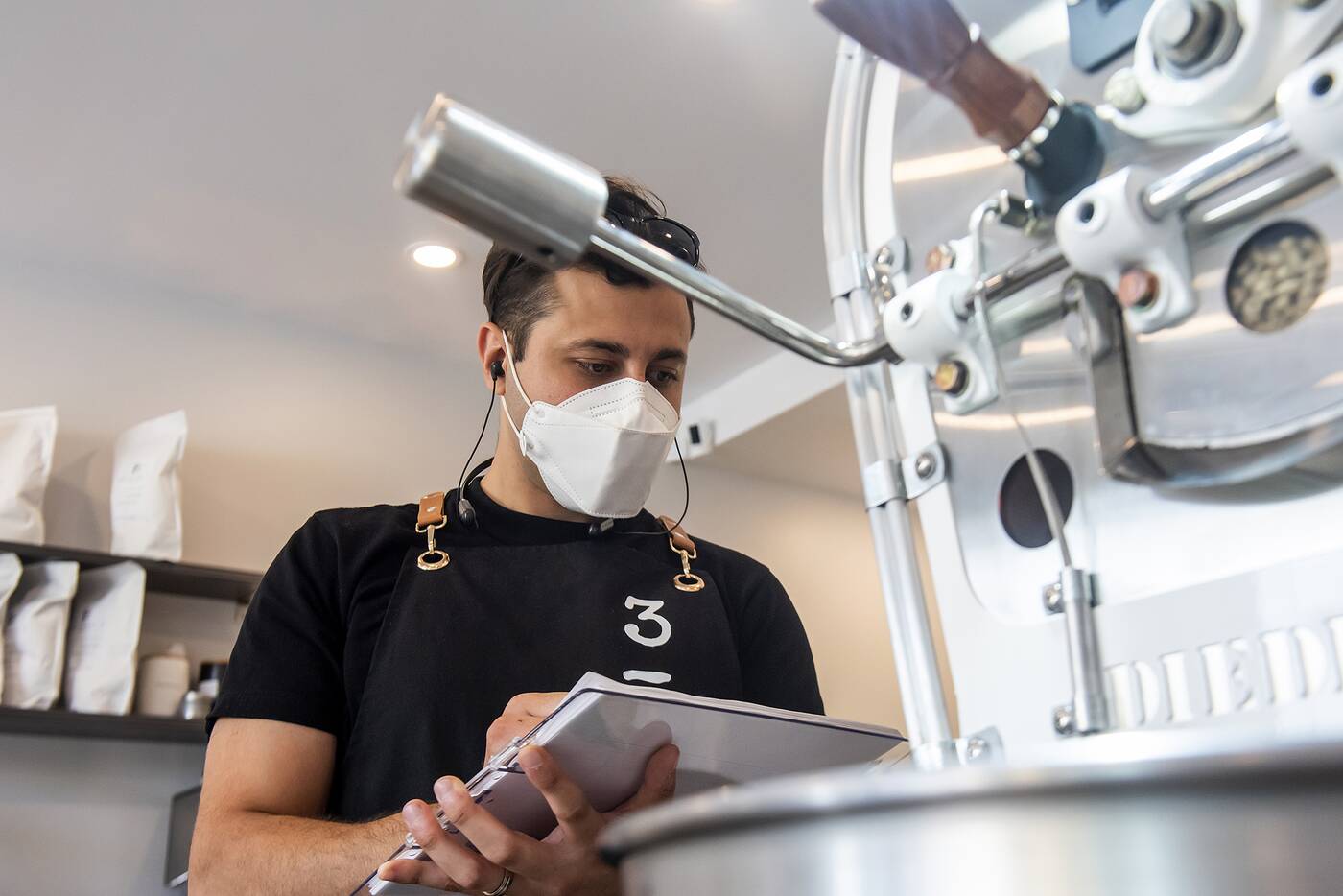
Alzatmah and Ng tried over 120 coffee beans, ranked them between five different sets of criteria, and selected only the highest scoring in order to come up with their list of eight beans on offer. They only source from organic farms and roast about twice a week.
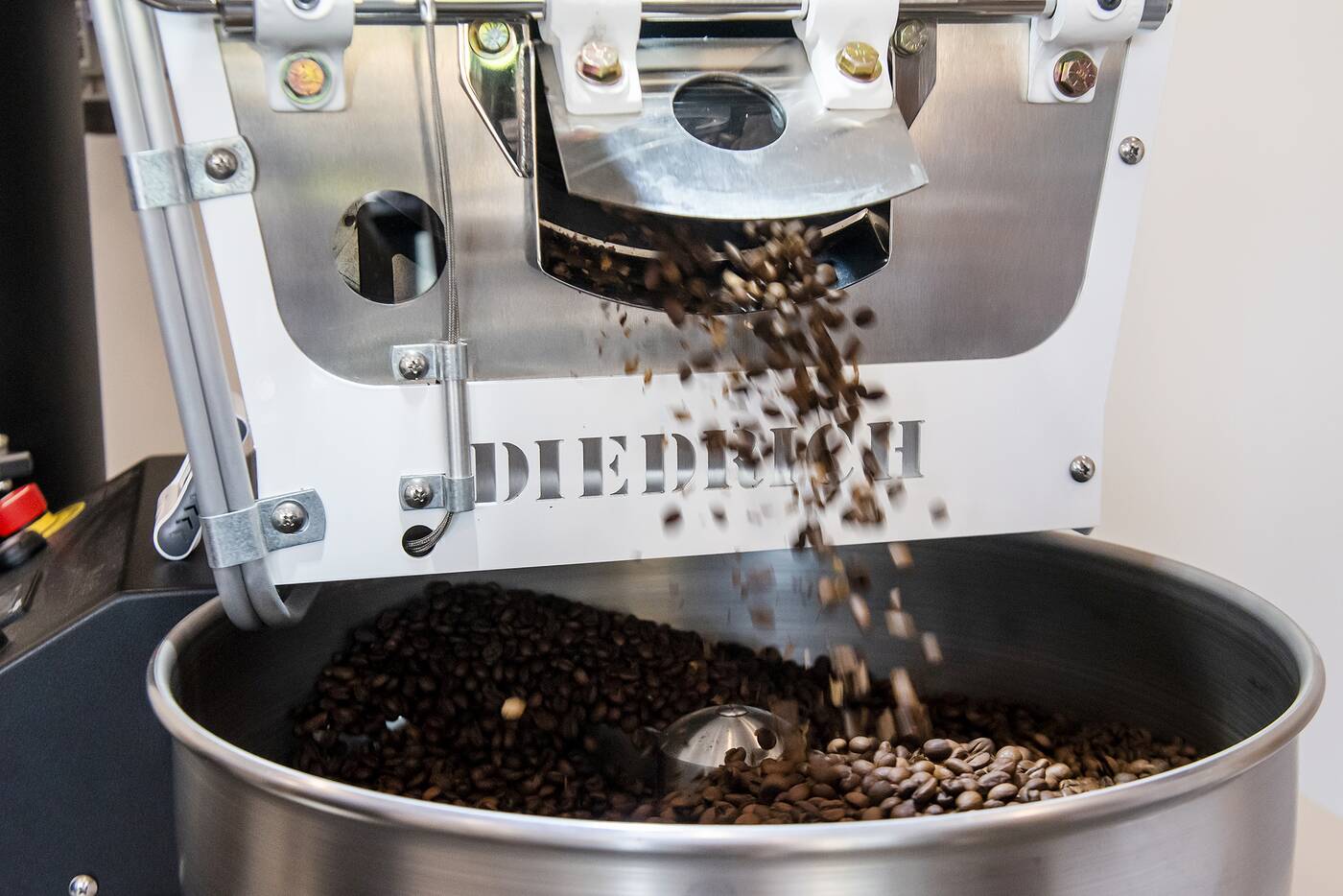
The beans are roasted in small batches of 2.5 kgs and spend between 11 to 14 minutes in the roaster depending on whether it's to be a light or medium roast. The light roast Ethiopian beans are expelled at what they call the "first crack" and just around that 11-minute mark.
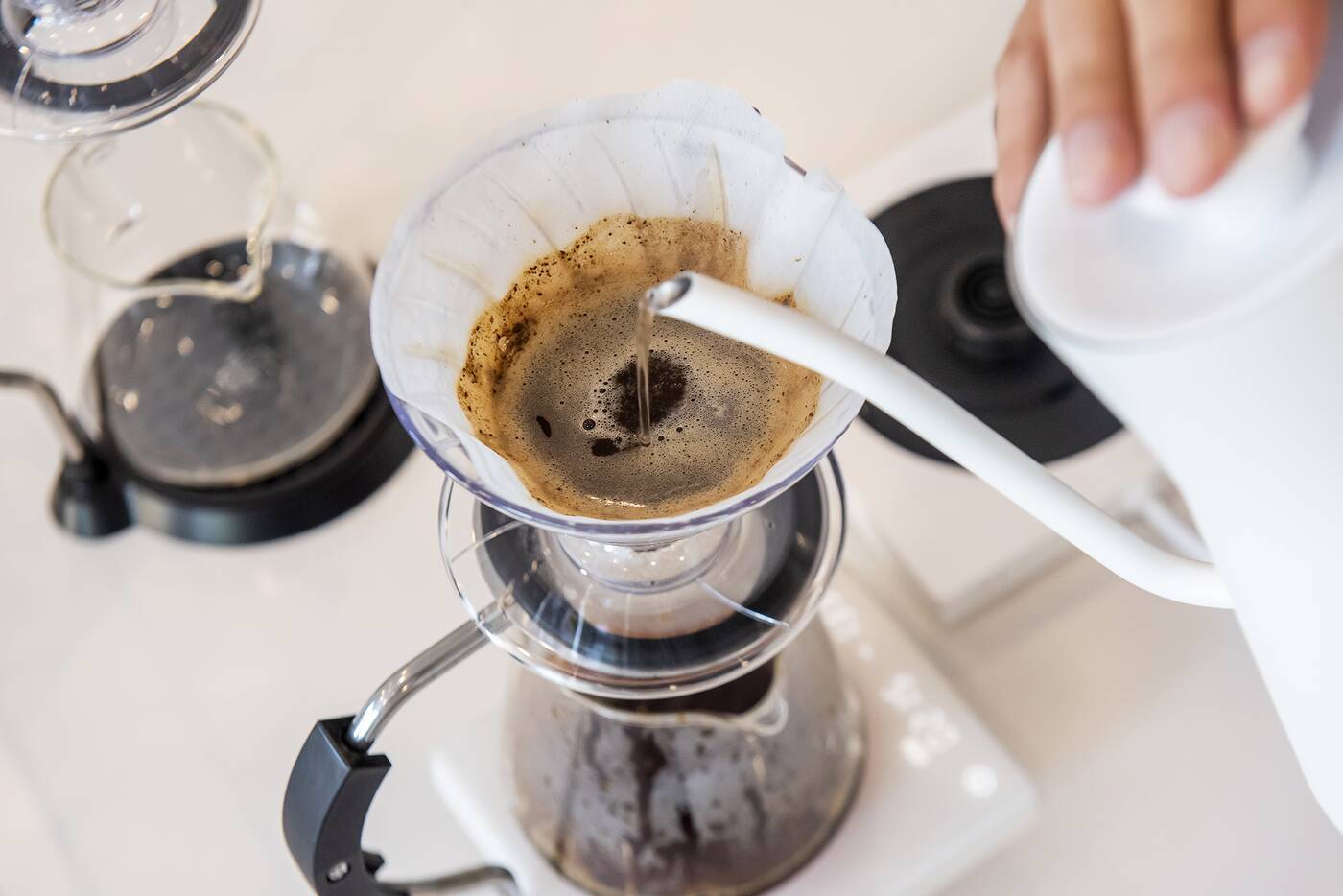
They offer pour-over here, though it'll cost you $6. This brewing method isn't often seen in other coffee shops, mostly because it takes five minutes to prepare one cup.
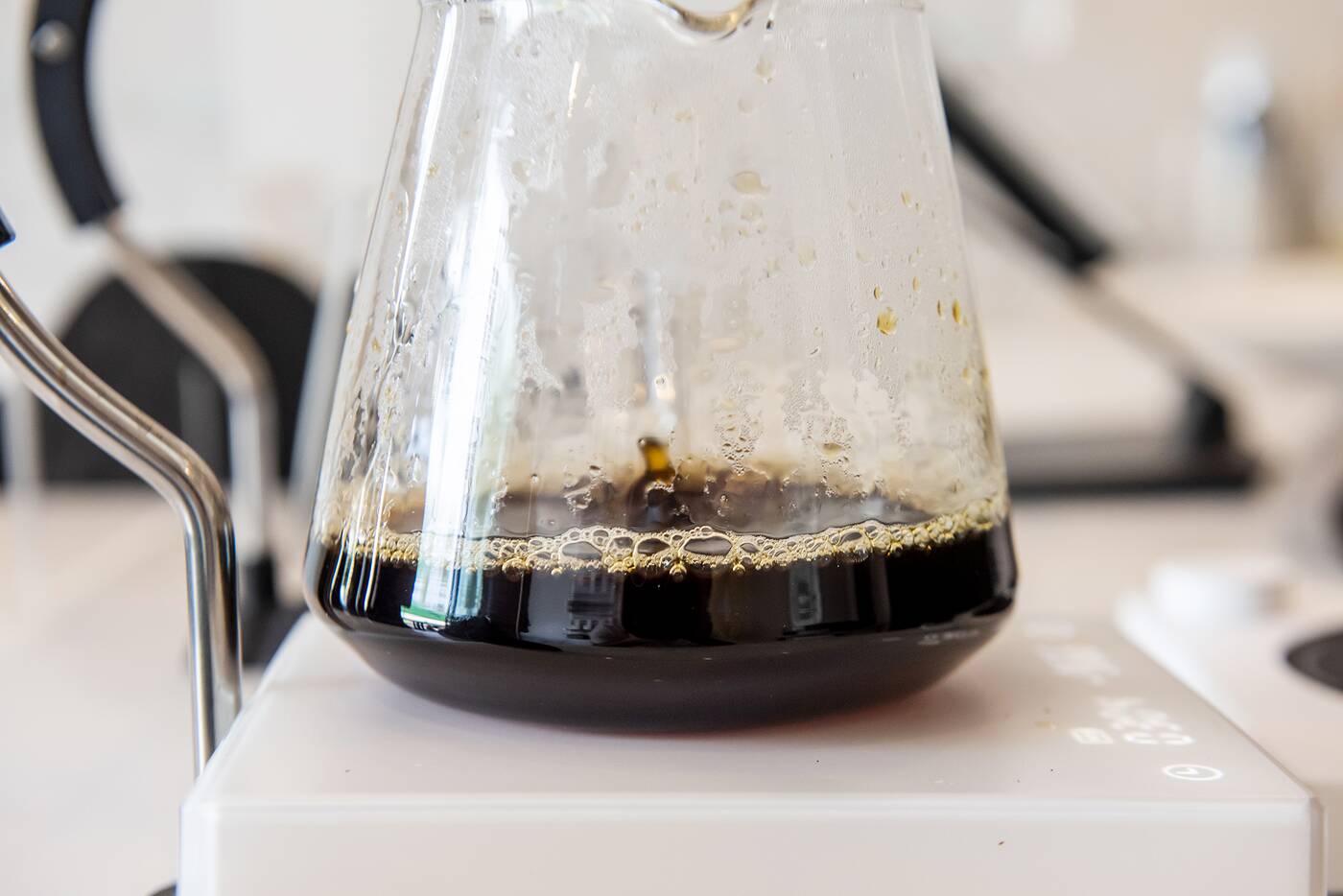
The wait time and added cost are worth it for coffee connoisseurs considering a lot more flavour is extracted from the bean when brewed this way. Alzatmah and Ng also like to walk customers through the process, so you can expect a bit of education on the side of your coffee.
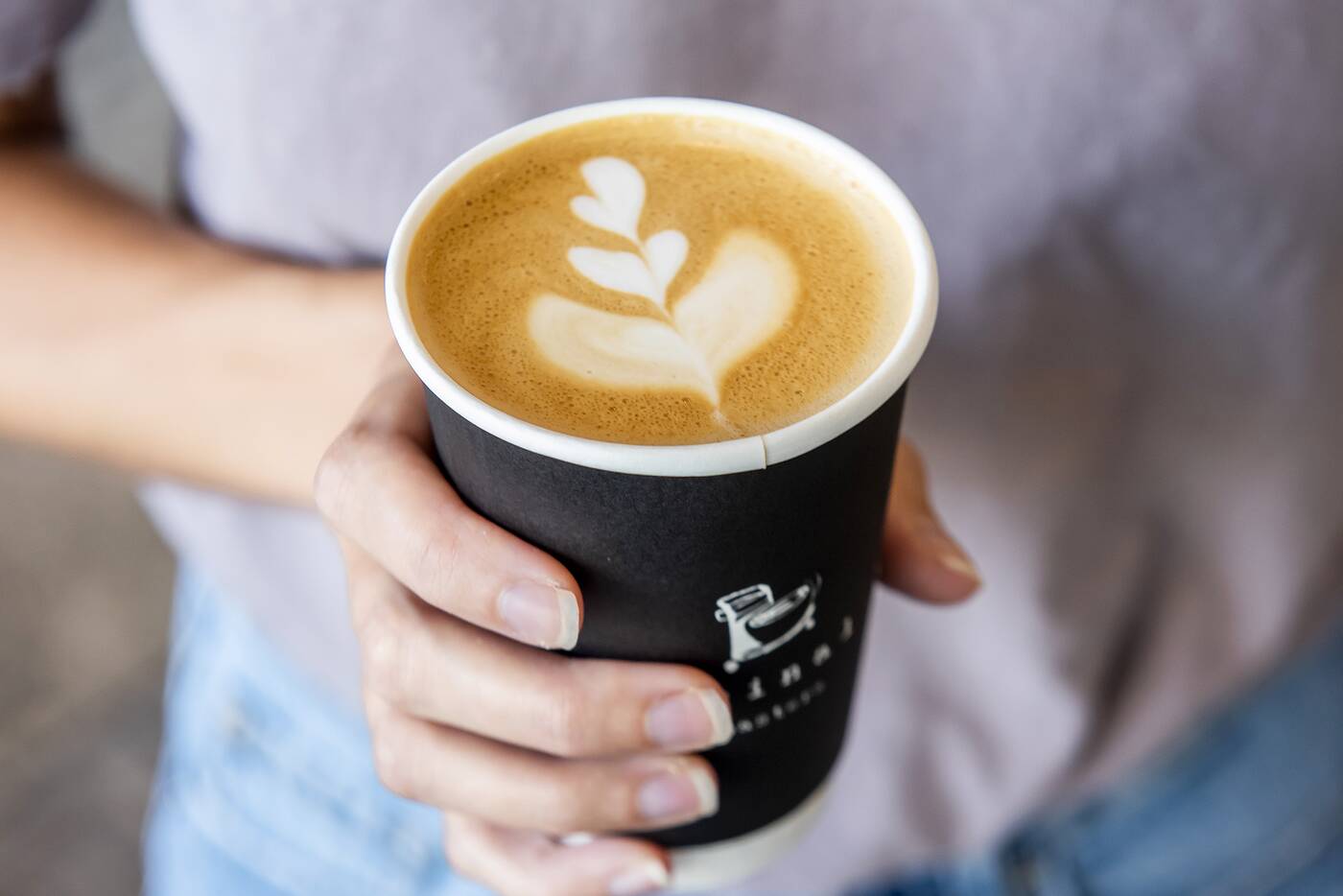
Lattes ($4.80) comes with your choice of organic dairy, oat, almond or soy and is served in a 10-ounce cup, the only size served here in order to avoid diluting the espresso.
Guji from Ethiopia, tasting a bit of wine and chocolate, is used. This is just one of two African beans available. I'm told that's more than you'll find in your usual cafe as beans from this continent usually come a bit more premium due to limited harvesting seasons.
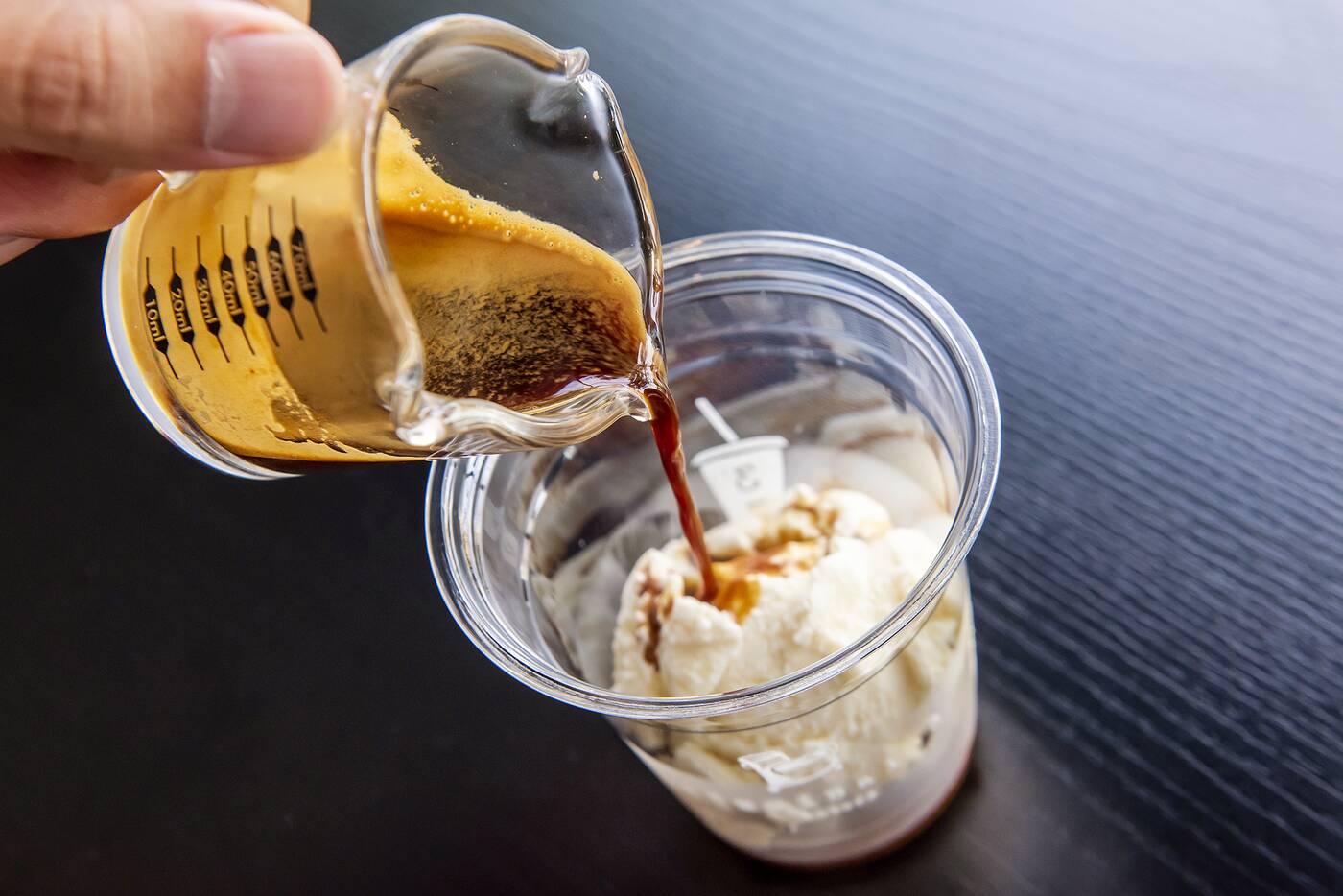
A fresh shot of espresso brewed from the La Marzocco behind the counter is poured over a scoop of vanilla Häagen-Dazs for the affogato ($4.80).
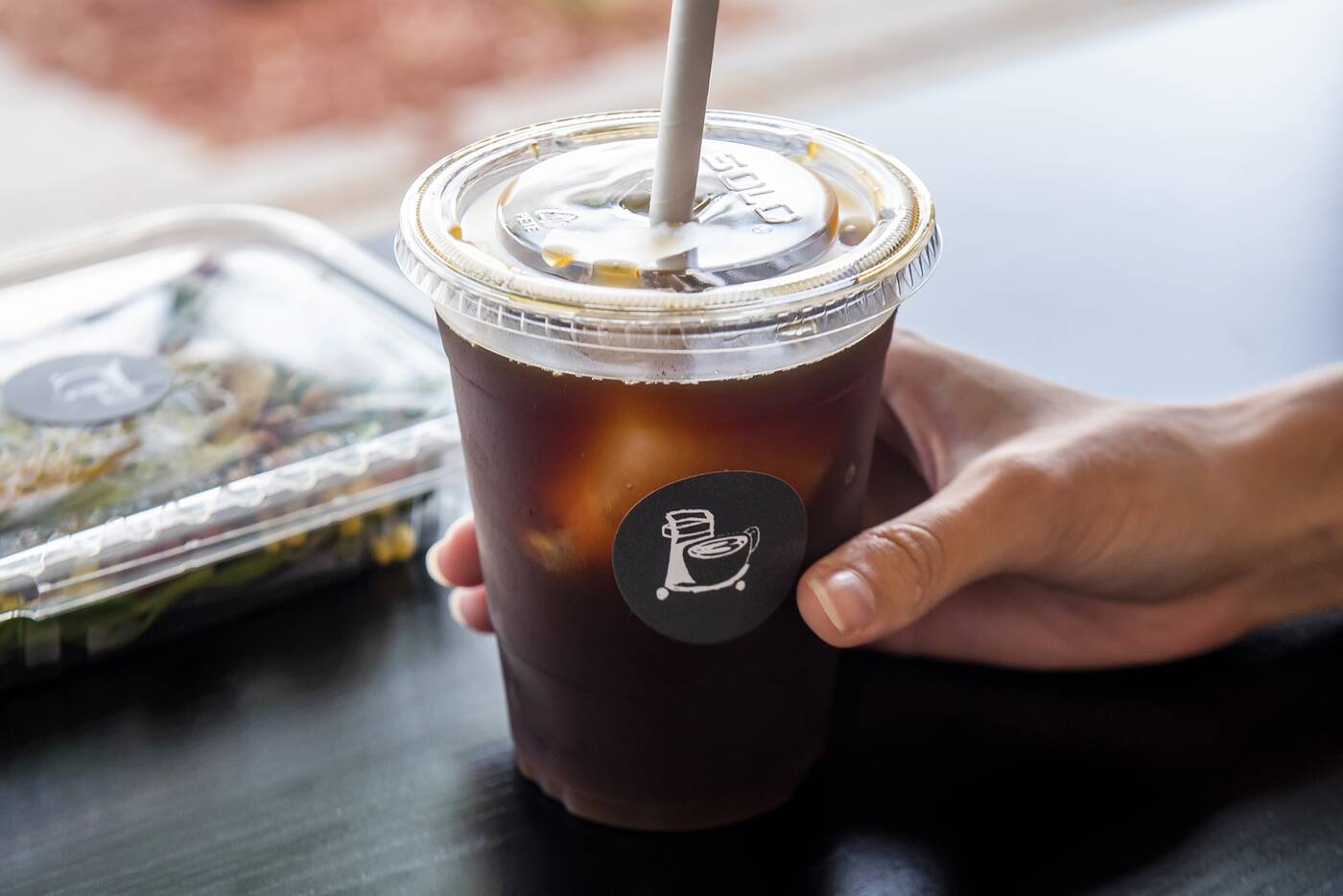 We try an iced coffee ($3.70) with the Yirgacheffe bean, the other Ethiopian option with notes of berries and lemon. A large Japanese whiskey-style ice cube keeps it nice and cold without watering it down.
We try an iced coffee ($3.70) with the Yirgacheffe bean, the other Ethiopian option with notes of berries and lemon. A large Japanese whiskey-style ice cube keeps it nice and cold without watering it down.
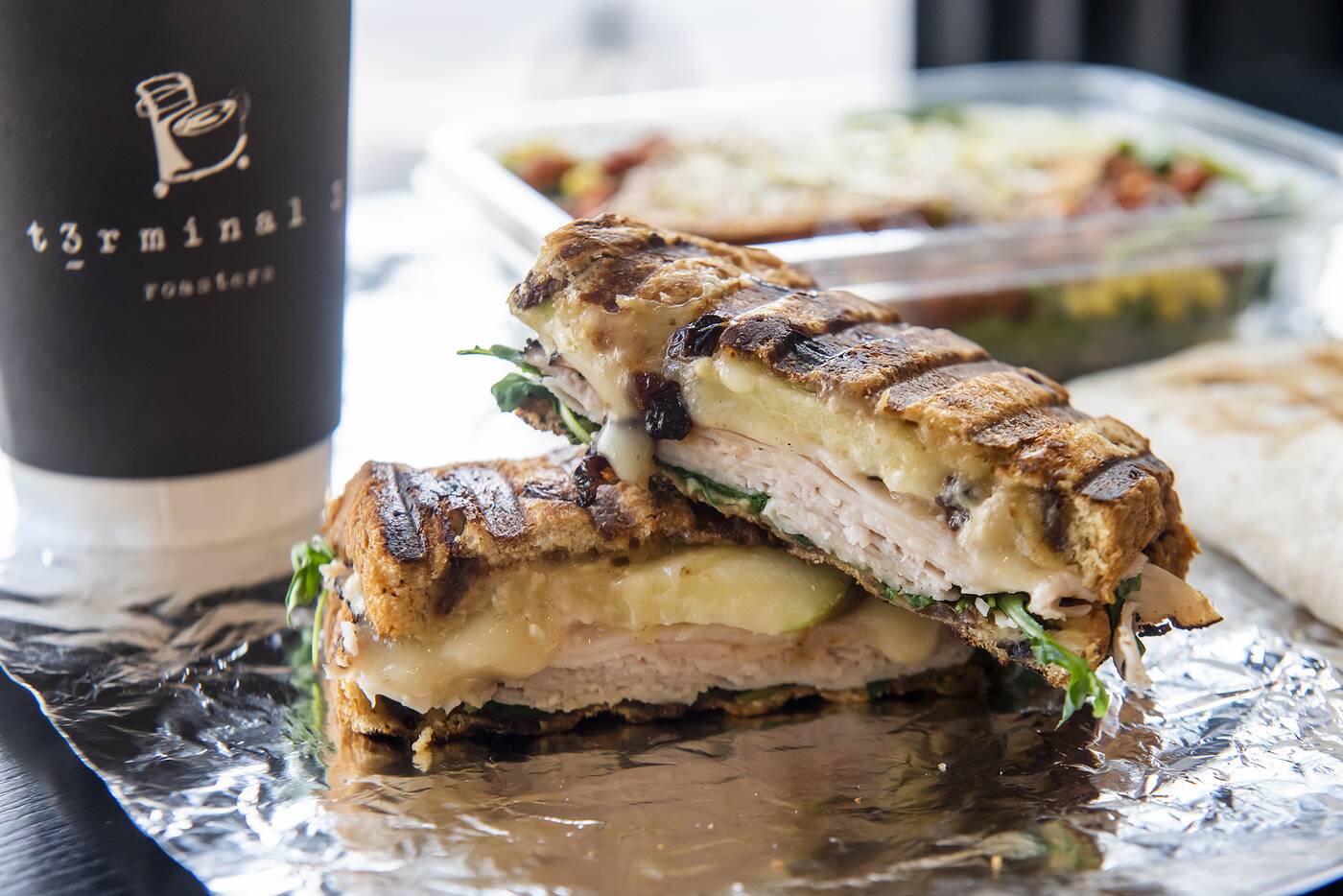
There are also a few different sandwiches and salads on the menu made by Alzatmah's chef sister. The honey maple turkey panini ($10) comes on raisin bread (a personal favourite) and is topped with green apples, Brie and arugula.
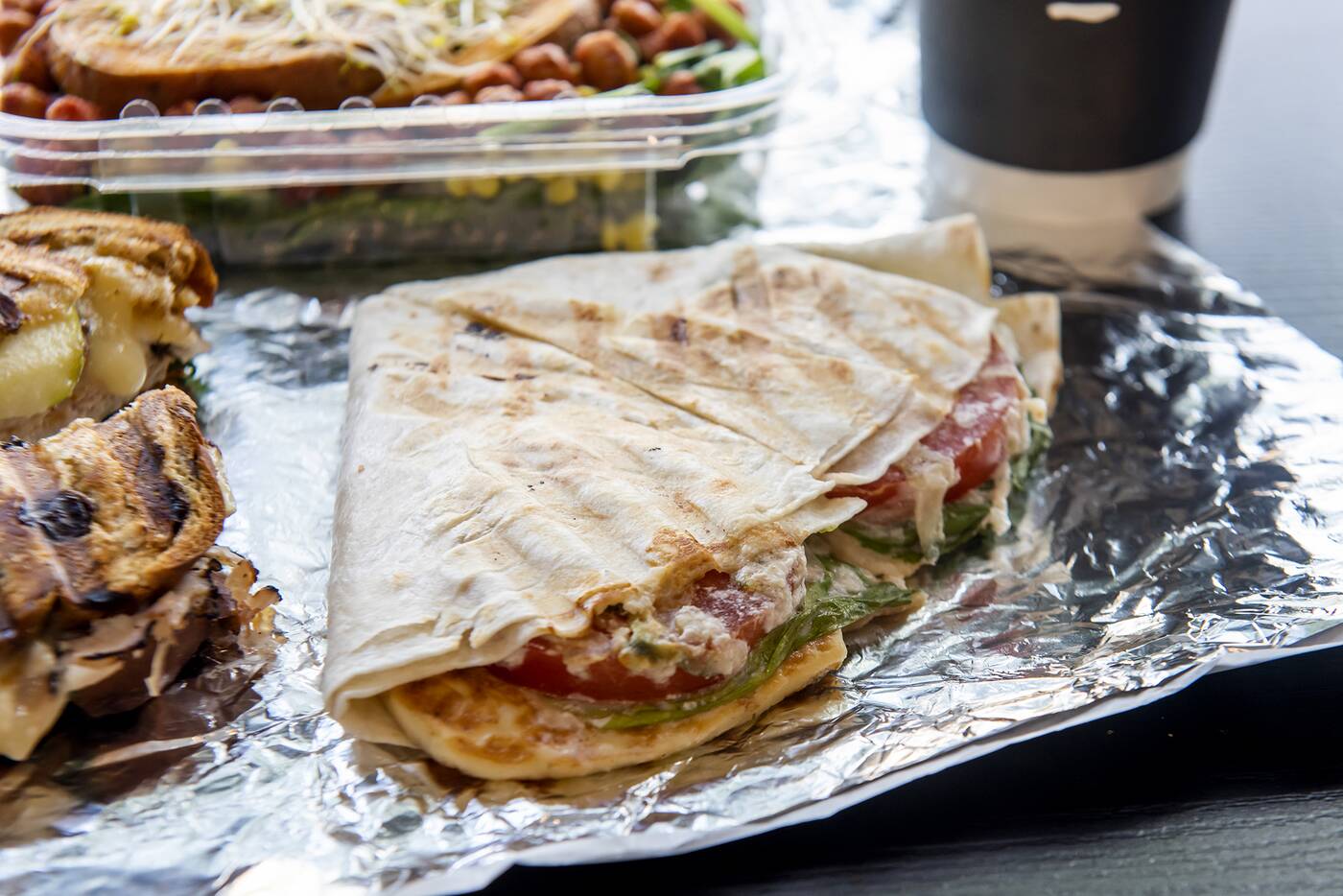
The cheese wrap includes seared halloumi, lettuce, tomatoes and tzatziki sauce. Although tasty, $9 feels a little steep for what you're getting.
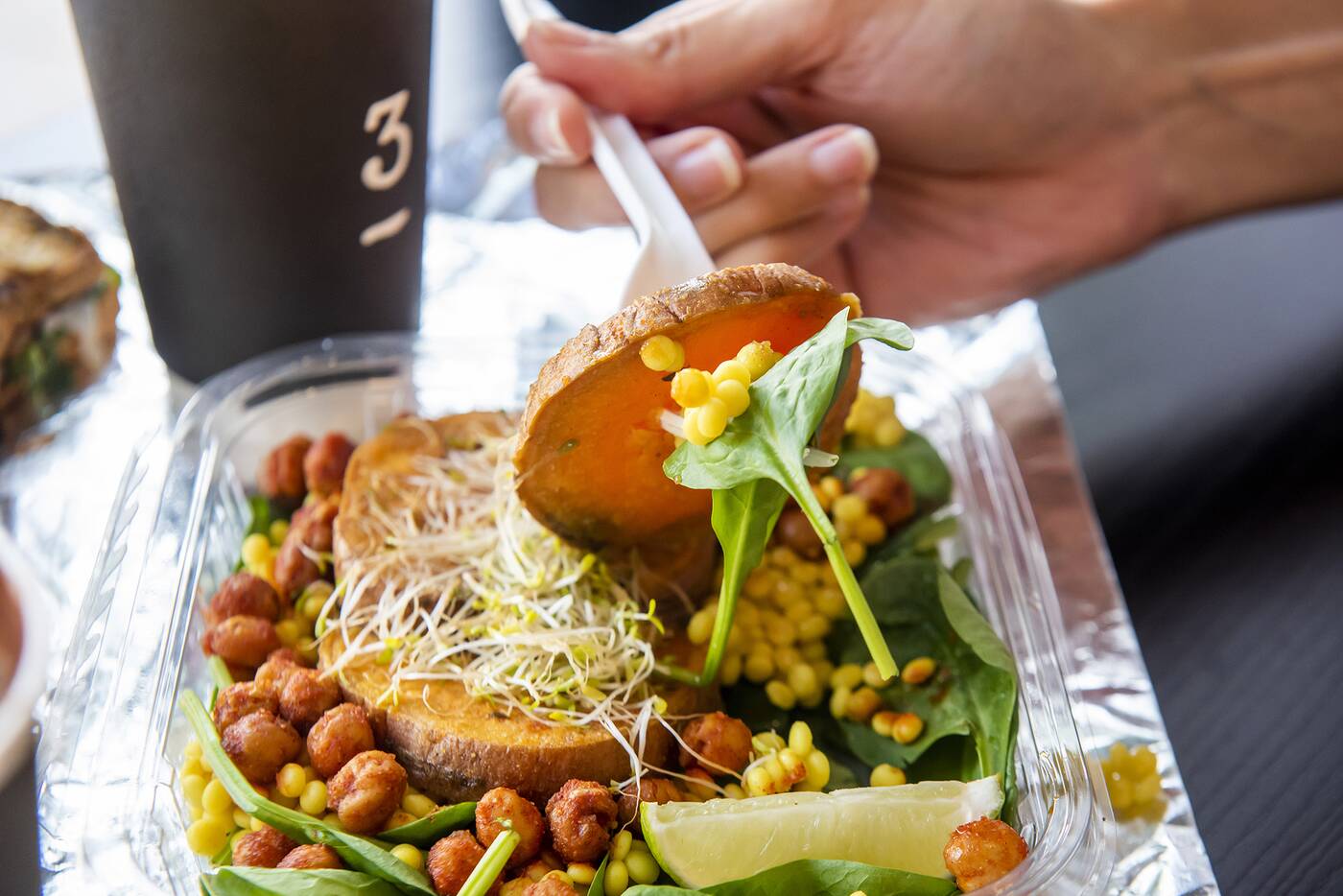 Adding to the offerings is the sweet potato salad ($8) with spinach, crispy spiced chickpeas, pearl couscous and three slabs of grilled sweet potato.
Adding to the offerings is the sweet potato salad ($8) with spinach, crispy spiced chickpeas, pearl couscous and three slabs of grilled sweet potato. 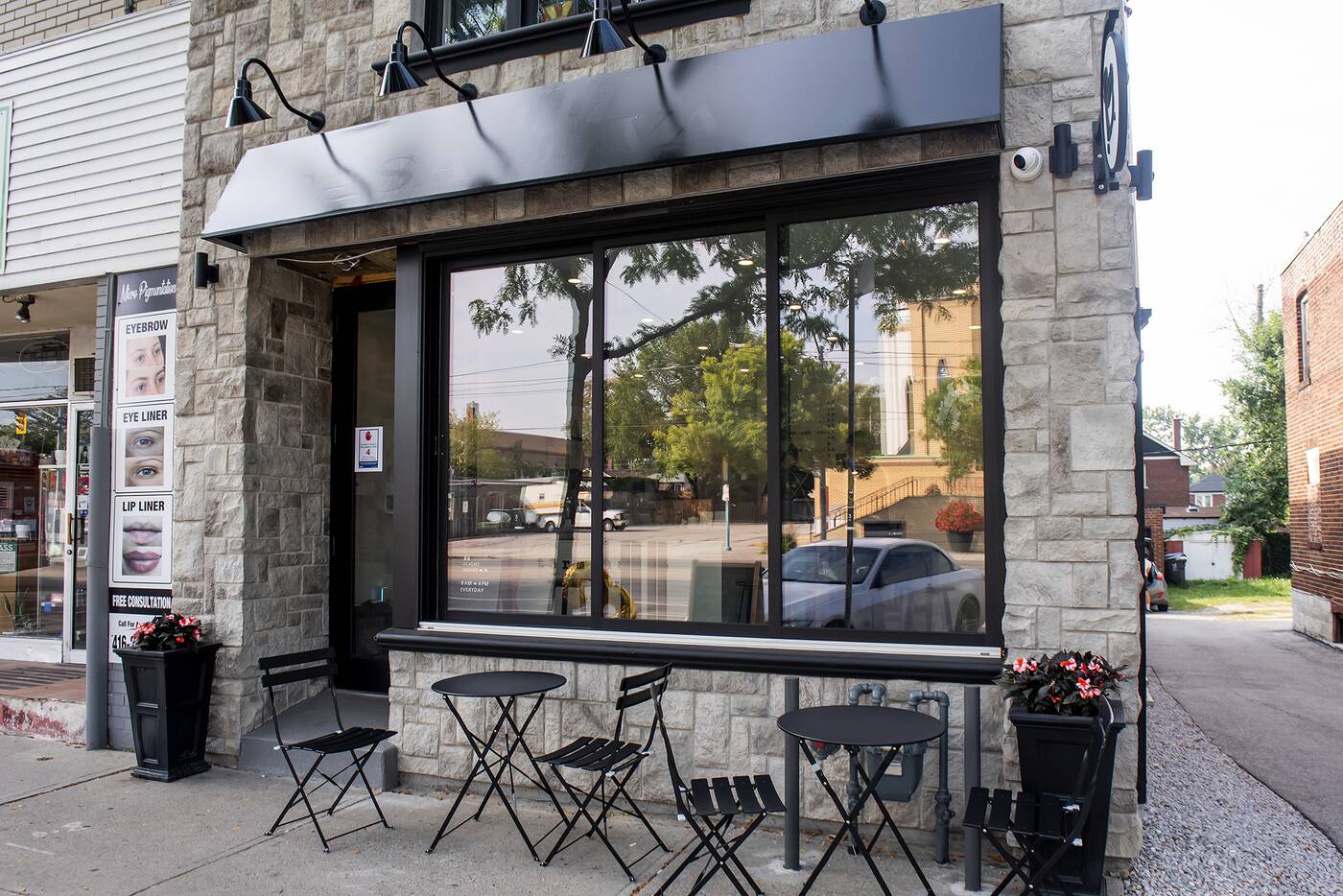
Hector Vasquez










